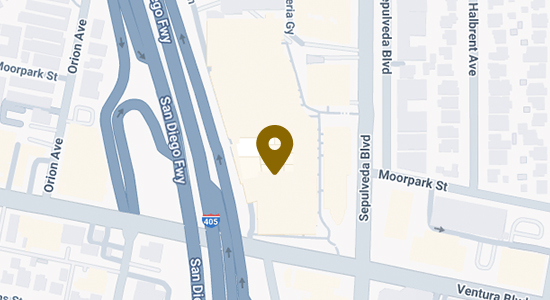Be an Option
Corporal Injury
If you willfully inflict injury upon another person that is a spouse, former spouse, cohabitant, former cohabitant, or the mother or father of his or her child which results in injury, you can be charged with Penal Code 273.5 a felony and upon conviction may be sentenced to state prison for up to four years.
An experienced criminal defense lawyer can protect your rights and liberty. Call Michael P. Kade, Esq. now for a free consultation by calling 310-481-9949. Michael Payman Kade, a former police officer and a criminal defense lawyer since 1999 is the perfect lawyer to come to your rescue to prove your innocence, protect your rights and liberty. Michael P. Kade is experienced and caring. Find out for yourself by calling 310-481-9949.
Penal Code 273.5.
(a) Any person who willfully inflicts upon a person who is his or her spouse, former spouse, cohabitant, former cohabitant, or the mother or father of his or her child, corporal injury resulting in a traumatic condition is guilty of a felony, and upon conviction thereof shall be punished by imprisonment in the state prison for two, three, or four years, or in a county jail for not more than one year, or by a fine of up to six thousand dollars ($6,000) or by both that fine and imprisonment.
(b) Holding oneself out to be the husband or wife of the person with whom one is cohabiting is not necessary to constitute cohabitation as the term is used in this section.
(c) As used in this section, “traumatic condition” means a condition of the body, such as a wound, or external or internal injury, including, but not limited to, injury as a result of strangulation or suffocation, whether of a minor or serious nature, caused by a physical force. For purposes of this section, “strangulation” and “suffocation” include impeding the normal breathing or circulation of the blood of a person by applying pressure on the throat or neck.
(d) For the purpose of this section, a person shall be considered the father or mother of another person’s child if the alleged male parent is presumed the natural father under Sections 7611 and 7612 of the Family Code.
(e) (1) Any person convicted of violating this section for acts occurring within seven years of a previous conviction under subdivision (a), or subdivision (d) of Section 243, or Section 243.4, 244, 244.5, or 245, shall be punished by imprisonment in a county jail for not more than one year, or by imprisonment in the state prison for two, four, or five years, or by both imprisonment and a fine of up to ten thousand dollars ($10,000).
(2) Any person convicted of a violation of this section for acts occurring within seven years of a previous conviction under subdivision (e) of Section 243 shall be punished by imprisonment in the state prison for two, three, or four years, or in a county jail for not more than one year, or by a fine of up to ten thousand dollars ($10,000), or by both that imprisonment and fine.
(f) If probation is granted to any person convicted under subdivision (a), the court shall impose probation consistent with the provisions of Section 1203.097.
(g) If probation is granted, or the execution or imposition of a sentence is suspended, for any defendant convicted under subdivision (a) who has been convicted of any prior offense specified insubdivision (e), the court shall impose one of the following conditions of probation:
(1) If the defendant has suffered one prior conviction within the previous seven years for a violation of any offense specified in subdivision (e), it shall be a condition thereof, in addition to the provisions contained in Section 1203.097, that he or she be imprisoned in a county jail for not less than 15 days.
(2) If the defendant has suffered two or more prior convictions within the previous seven years for a violation of any offense specified in subdivision (e), it shall be a condition of probation, in addition to the provisions contained in Section 1203.097, that he or she be imprisoned in a county jail for not less than 60 days.
(3) The court, upon a showing of good cause, may find that the mandatory imprisonment required by this subdivision shall not be imposed and shall state on the record its reasons for finding good cause.
(h) If probation is granted upon conviction of a violation of subdivision (a), the conditions of probation may include, consistent with the terms of probation imposed pursuant to Section 1203.097, in lieu of a fine, one or both of the following requirements:
(1) That the defendant make payments to a battered women’s shelter, up to a maximum of five thousand dollars ($5,000), pursuant to Section 1203.097.
(2) That the defendant reimburse the victim for reasonable costs of counseling and other reasonable expenses that the court finds are the direct result of the defendant’s offense.
For any order to pay a fine, make payments to a battered women’s shelter, or pay restitution as a condition of probation under this subdivision, the court shall make a determination of the defendant’s ability to pay. In no event shall any order to make payments to a battered women’s shelter be made if it would impair the ability of the defendant to pay direct restitution to the victim or court-ordered child support. Where the injury to a married person is caused in whole or in part by the criminal acts of his or her spouse in violation of this section, the community property may not be used to discharge the liability of the offending spouse for restitution to the injured spouse, required by Section 1203.04, as operative on or before August 2, 1995, or Section 1202.4, or to a shelter for costs with regard to the injured spouse and dependents, required by this section, until all separate property of the offending spouse is exhausted.
(i) Upon conviction under subdivision (a), the sentencing court shall also consider issuing an order restraining the defendant from any contact with the victim, which may be valid for up to 10 years, as determined by the court. It is the intent of the Legislature that the length of any restraining order be based upon the seriousness of the facts before the court, the probability of future violations, and the safety of the victim and his or her immediate family. This protective order may be issued by the court whether the defendant is sentenced to state prison, county jail, or if imposition of sentence is suspended and the defendant is placed on probation.
(j) If a peace officer makes an arrest for a violation of this section, the peace officer is not required to inform the victim of his or her right to make a citizen’s arrest pursuant to subdivision (b) of Section 836.









